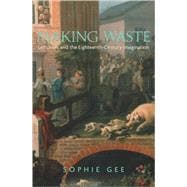
Note: Supplemental materials are not guaranteed with Rental or Used book purchases.
Purchase Benefits
What is included with this book?
| Acknowledgments | p. vii |
| Introduction: Making Waste | p. 1 |
| The Invention of the Wasteland: Civic Narrative and Dryden's Annus Mirabilis | p. 18 |
| Wastelands, Paradise Lost and Popular Polemic at the Restoration | p. 41 |
| Milton's Chaos in Pope's London: Material Philosophy and the Book Trade | p. 67 |
| The Man on the Dump: Swift, Ireland, and the Problem of Waste | p. 91 |
| Holding On to the Corpse: Fleshly Remains in A Journal of the Plague Year | p. 112 |
| Afterword: Mr. Spectator's Tears and Sophia Western's Muff | p. 137 |
| Notes | p. 145 |
| Bibliography | p. 169 |
| Index | p. 187 |
| Table of Contents provided by Ingram. All Rights Reserved. |
The New copy of this book will include any supplemental materials advertised. Please check the title of the book to determine if it should include any access cards, study guides, lab manuals, CDs, etc.
The Used, Rental and eBook copies of this book are not guaranteed to include any supplemental materials. Typically, only the book itself is included. This is true even if the title states it includes any access cards, study guides, lab manuals, CDs, etc.